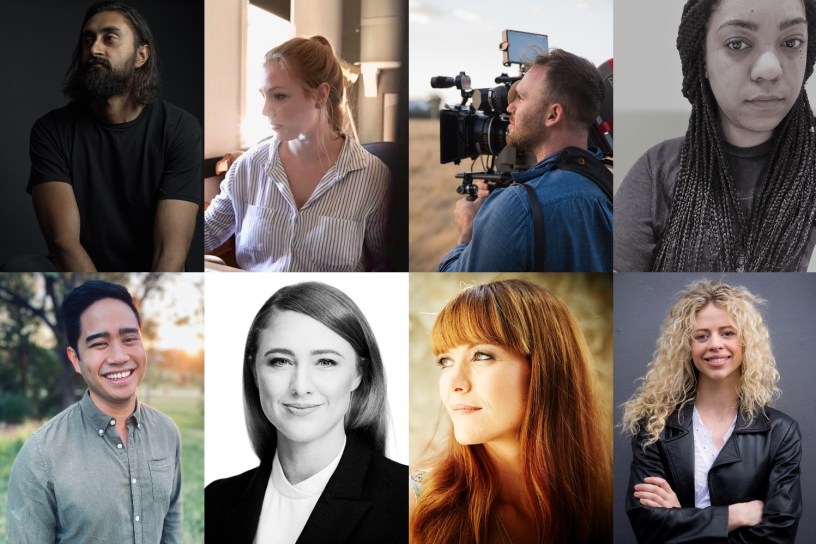IF is closing its call out for Rising Talent list for 2024, our annual celebration of the industry’s next big things, both above and below-the-line, TOMORROW! Don’t forget to send your recommendations for the list to risingstars@if.com.au before close of business.
In the meantime, we thought we’d catch up with some of those we featured on Rising Talent list for 2023. Below is part four in our interview series, and catch up part one, part two and part three. Our last instalment will come tomorrow.
Our Rising Talent list for 2023 was brought to you by major sponsor AFTRS.
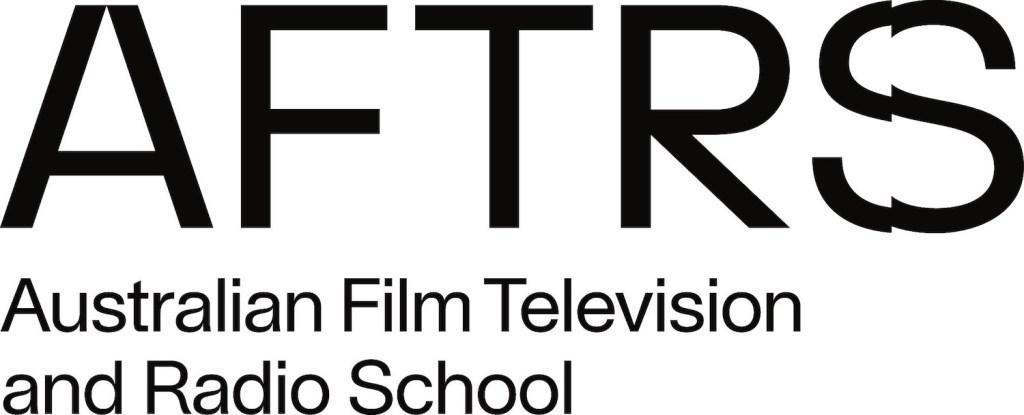
Cinematographers
Brought to you by Videocraft

Edward Goldner
What have you been working on the last 12 months?
Earlier in the year, I jumped back into the commercial world along with a photography trip over to Pakistan. At the moment, I’m shooting the feature adaptation of Paul Kelly’s How to Make Gravy with an amazing cast and crew up in Queensland.
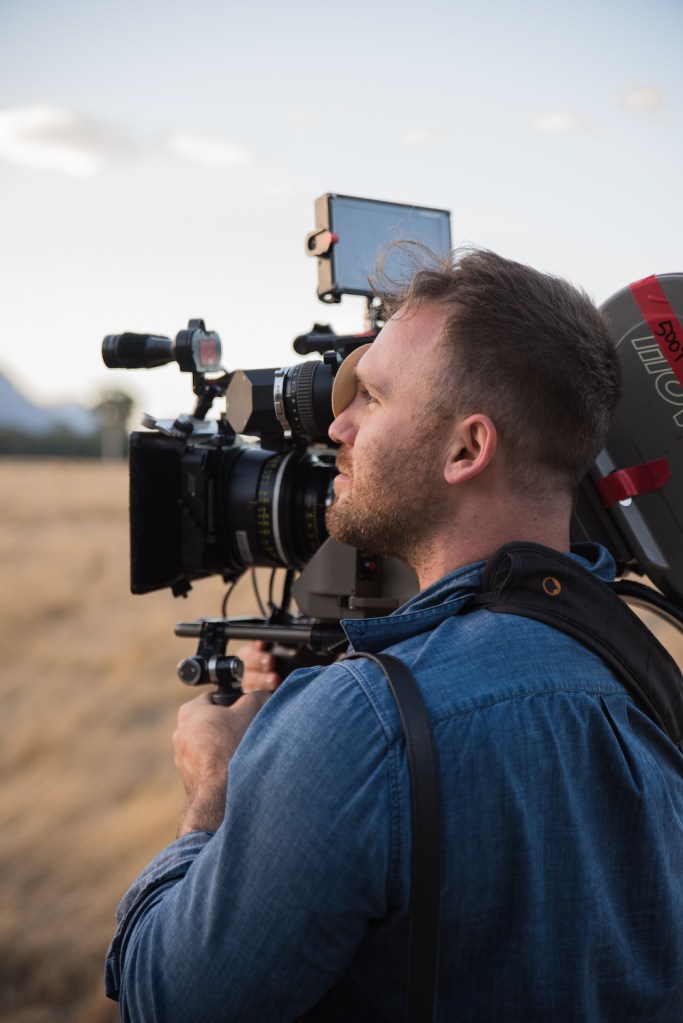
Why did you initially decide you wanted to be a cinematographer?
Like a lot of other people going into film school, I initially thought I wanted to direct. Towards the end of my first year at uni, I found myself gravitating towards cinematography for a whole range of reasons. I have always had an interest in photography but also realised my strength and excitement stems from helping others realise their ideas. The role is perfect for me as it allows a huge level of immersion into a project whilst also having a freedom to jump between hugely different ideas and approaches to storytelling.
What’s the advice you wish you’d gotten when you were starting out?
I can’t think of anything specific although one of the biggest learning curves for me has been not craft related, but the nuances and quirks of the film industry that aren’t initially apparent to a lot of people who, like myself, have not come up through the ranks in a more traditional sense. I’ve been incredibly fortunate to have a great network of crew and other cinematographers who I’m able to lean on for advice when I need it.
What’s the biggest issue facing cinematographers trying to cut their teeth in the Australian screen industry?
I was very fortunate to start at a time when there were significantly less people trying to shoot. I do feel for emerging DPs who now face a lot more competition as they try to get their feet in the door.
Your best gig and why?
The one I’m currently on!
Any people who have championed your career you want to give a shout out to?
There have been so many! Guy Franklin, Chris Child (who I currently have the privilege of working with at the moment), Dan Mitton, everyone at The Vision House, Jeff Bird, Bonnie Moir, Hamish Lewis, Nick Waterman and Megan Washington to name just a few.
Last film/TV show that inspired you?
I saw Monster by Kore-Eda at MIFF, which blew my mind. He’s hands down one of my all-time favourite directors.
Composers
Angela Little
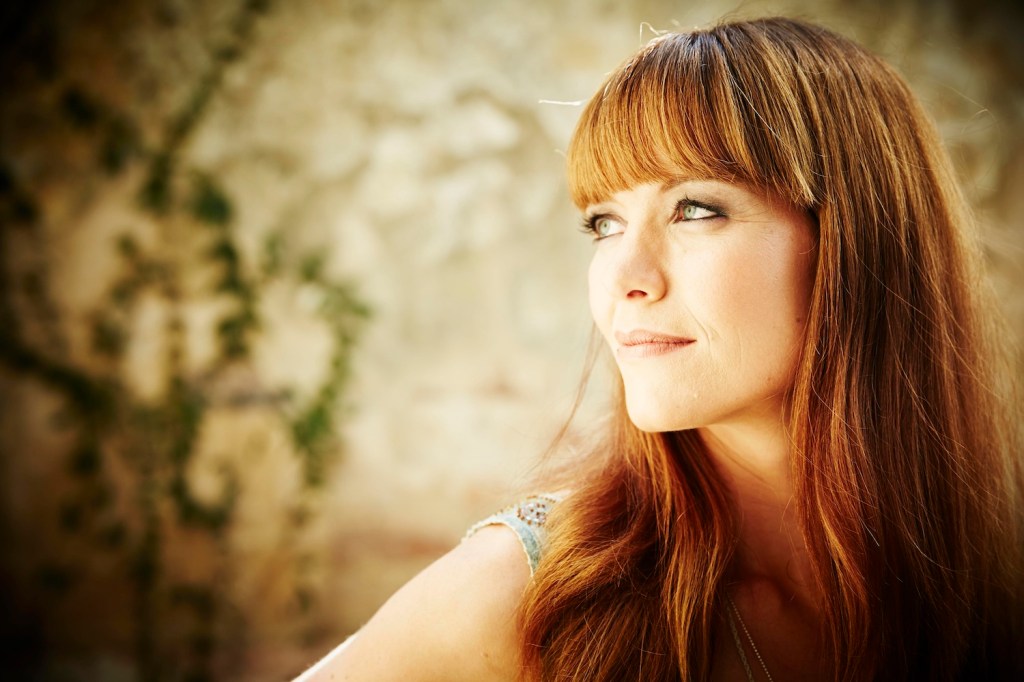
What have you been working on the last 12 months?
A range of TV, feature film and video game projects, including US TV series The Secret Life Of Amy Bensen, Australian feature film Take My Hand, produced by Bronte Pictures and starring Radha Mitchell and Adam Demos, and Australian video game Memory’s Reach, developed by 100 Stones Interactive.
Why did you initially decide you wanted to be a composer?
Because I love creating music, and specifically music for narrative. Media composition was the perfect fit!
What’s the advice you wish you’d gotten when you were starting out?
It’s a marathon, not a sprint.
What’s the biggest issue facing composers who are trying to cut their teeth in the Australian screen industry?
It can be difficult to get the experience you need to be able to score bigger projects with live musicians so you can compete at an international level. It’s a bit of a chicken and egg scenario. Filmmakers need to know that you can handle a bigger budget and the associated logistics of delivering that kind of score, so you need a proven track record. But getting the opportunities to build up that track record can be difficult! However I did manage it eventually, and now often get commissioned to do projects involving live scoring, which is one of my favourite parts of the job!
Your best gig so far and why?
Honestly I can’t choose one, each project is so different. They all give me the chance to evolve as a composer and have a great time doing it!
Any people who have championed your career you want to give a shout out to?
Thomas Newman, Baz Luhrmann, Anton Monsted, Felix Meagher, Simon Leadley, Elaine Beckett, Geoff Watson, Dan Carlin, Mike Gorfaine and Andrew Zack. I have been very lucky to have gotten to work with and be mentored by some of my greatest heroes in the Australian and international industries. Each of these people have really supported me and believed in me, and have made a huge difference to my life and career.
Last film/TV show that inspired you?
The White Lotus. Such an amazing show and such an inventive score that not only took me by surprise, but managed to add extra layers of commentary to what was onscreen. Brilliant!
Who would you love to work with in the future?
Again, this is a tough one to narrow down! Really I just want to keep working with filmmakers and game devs who are willing to trust me creatively, who are willing to put projects into my hands that will continue to allow me to aim high, to be inventive, adventurous and to give their story the best score I can!
Daniel O’Brien
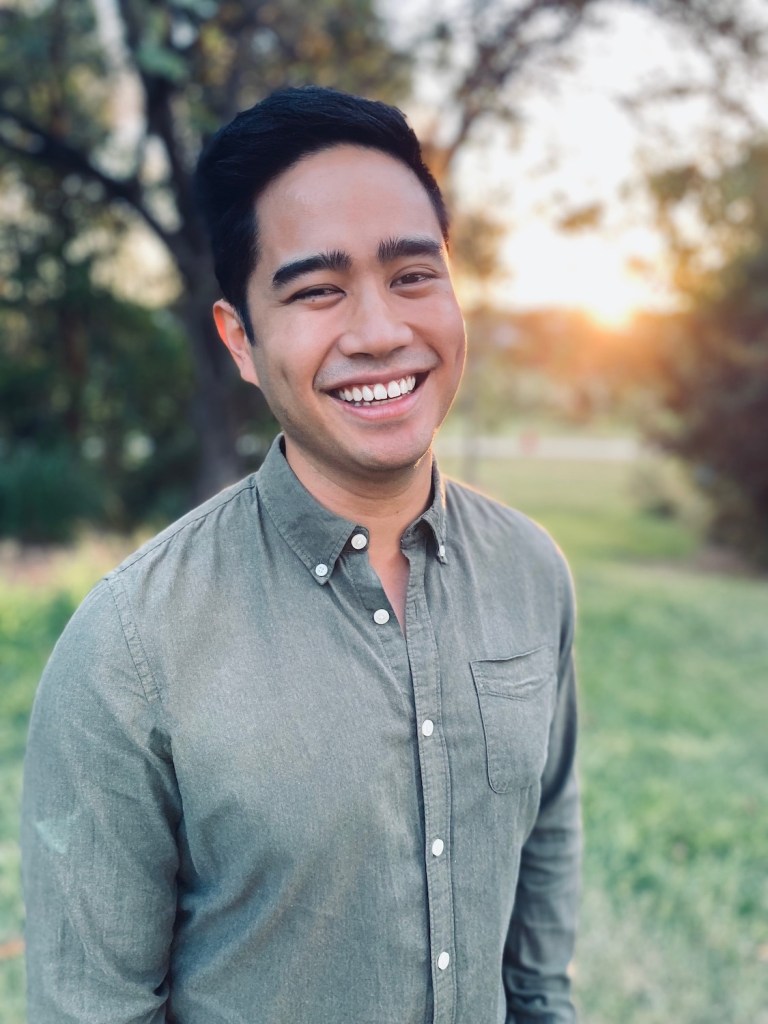
What have you been working on the last 12 months?
I’ve been working on a few Bluey things, including season 3, the recently released album, plus a few bits and bobs around the show. I also work on another kids show called The Strange Chores with Joe Twist and Joff Bush, which is made by the same studio who make Bluey.
Why did you initially decide you wanted to be a composer?
I knew from when I was about 15 I wanted to be a film composer. I started playing piano when I was 6 years old, then I started playing drums/percussion when I was about 10 which I enjoyed very much. In high school I fell in love with movies. I loved to watch the behind-the-scenes extras on DVDs to see how they created some amazing worlds and stories. I soon realised I could combine my two loves, and so my love for film music was born!
What’s the advice you wish you’d gotten when you were starting out?
I think art really reflects who you are as a person. So lean into that and embrace it. It’s what gives you your ‘unique voice’ which is what we all strive to find.
What’s the biggest issue facing composers who are trying to cut their teeth in the Australian screen industry?
I see a lot of people who love writing music for film, and unfortunately Australia can’t always provide that demand for work. Composers consequently look to the American film music industry. However, there’s a stark contrast between the size of the Australian screen industry, compared to the far greater American screen industry. This means composers know they can very easily get lost in the sea of budding American film composers, leaving them in a bit of a conundrum.
Your best gig so far and why?
Definitely Bluey! Joff Bush, the lead composer, has wonderfully mentored me and taught me the intricate craft of storytelling with music. Plus I’m hugely grateful for the validation and exposure it has provided me.
Any people who have championed your career you want to give a shout out to?
Everyone in my life has been very supportive of my career choice. So a huge love and thanks goes to all my family and friends!
Last film/TV show that inspired you?
Succession! Nicholas Britell is the composer of this show and I absolutely love how he weaves the theme in the crucial moments. The piano in the titles music is written in the very traditional classical genre, sneaking in accidental notes to create a sense of unease, while coupled with modern hip-hop beats. It skillfully represents the old family dynasty in a modern world.
Who would you love to work with in the future?
Rather than someone specific, I’d like to work on a drama, long form or feature – something HBO or A24. That would be great.
Costume Designers
Genevieve Graham
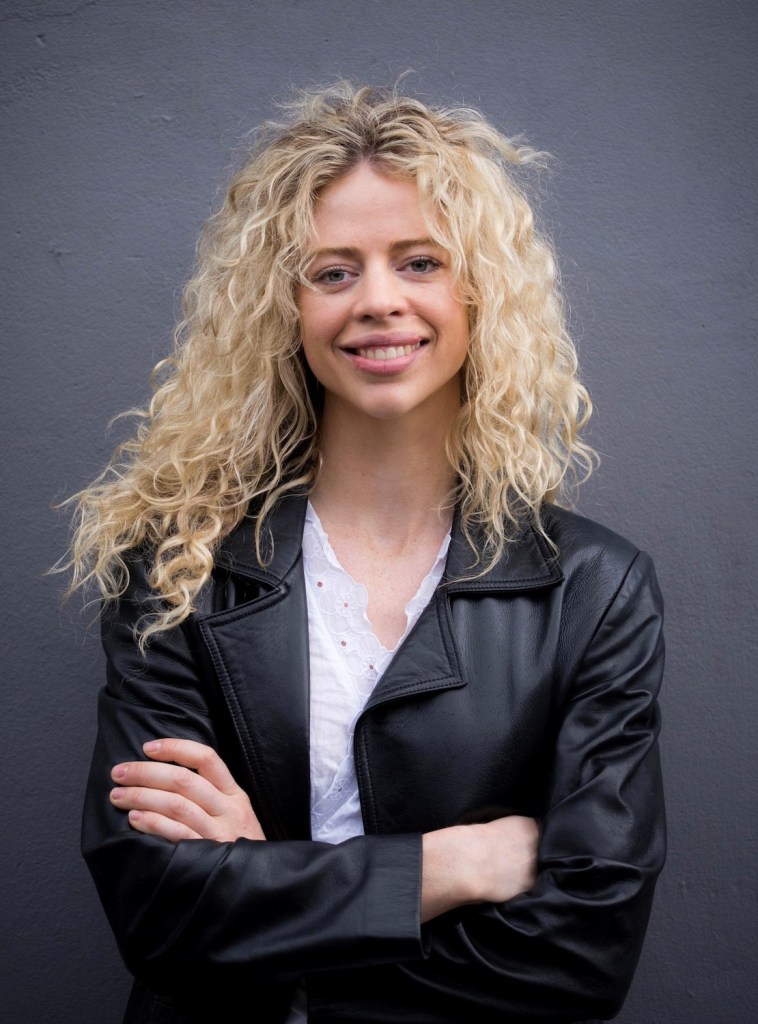
What have you been working on the last 12 months?
In the last 12 months I’ve been mainly working as a costume buyer. I bought for designer Caitlin Murray on the Paramount+ series Paper Dolls and Rita Carmody on Heartbreak High season 2,’ and Colin From Accounts season 2. In the middle of it I designed the costumes for a short film/proof of concept written by Chika Ikogwe Dog Eats World, and I’m currently working on the costumes for another short/proof of concept directed and written by Aaron Lucas, Luna and The Brain Tuna.
What’s the advice you wish you’d gotten when you were starting out?
Honestly I got really good advice when I was starting out – I asked so many questions of the people around me, so I knew some of the ups and down to expect. I guess some good advice I know now, would be to not compare yourself to the people around you, and run your own race. There is no one route to costume design success – however you define it, and often your set of design skills will be entirely unique anyway. I figured out quickly, but I wasn’t really told, how important your relationships in the industry are. It’s such a tight knit community that people will remember you -for better or for worse – and you never know where your next opportunity will come from. Also some good advice would be to remember to play the long game. There is so much longevity in this career. The longer you design, the richer your experience and your relationships become. There’s no rush!
What’s the biggest issue facing costume designers who are trying to cut their teeth in the Australian screen industry?
It can be hard to get a foot in the door if you feel as though you don’t have any ‘connections’ in the industry. However, I’ve always been a huge advocate of reaching out to people you respect or admire. I did this a lot, and still do, with absolutely no ulterior motive other than to find out more about an industry that can be quite mysterious at times.
Your best gig so far and why?
I’d say it’d be a tie between designing the costumes for the SBS series Appetite and being the costume buyer for Heartbreak High. Appetite was really my first time designing a television series with a bit of experience under my belt. It was daunting to face all the elements of designing a show on my own; building a team, sourcing costumes, altering, budgeting, organising fittings, all within a relatively small budget and short time frame. However when we finished shooting I was so proud of what our little team had achieved.
Buying on Heartbreak High was a pretty special experience. It felt like our team – led by designer Rita Carmody – was given permission to not only be a part of and reflect the current zeitgeist, but also direct and influence it in a way that shows like Euphoria and Sex Education did with their costumes. It was amazing to be a part of a project that was so focused on clothes, in a way that we’d never really seen in contemporary Australian TV before. The cherry on top was how well the series was received, especially the costumes – it really shone a light on the importance of clothes in telling a character’s story.
Directors
Brought to you by Post Lab IO

Neil Sharma
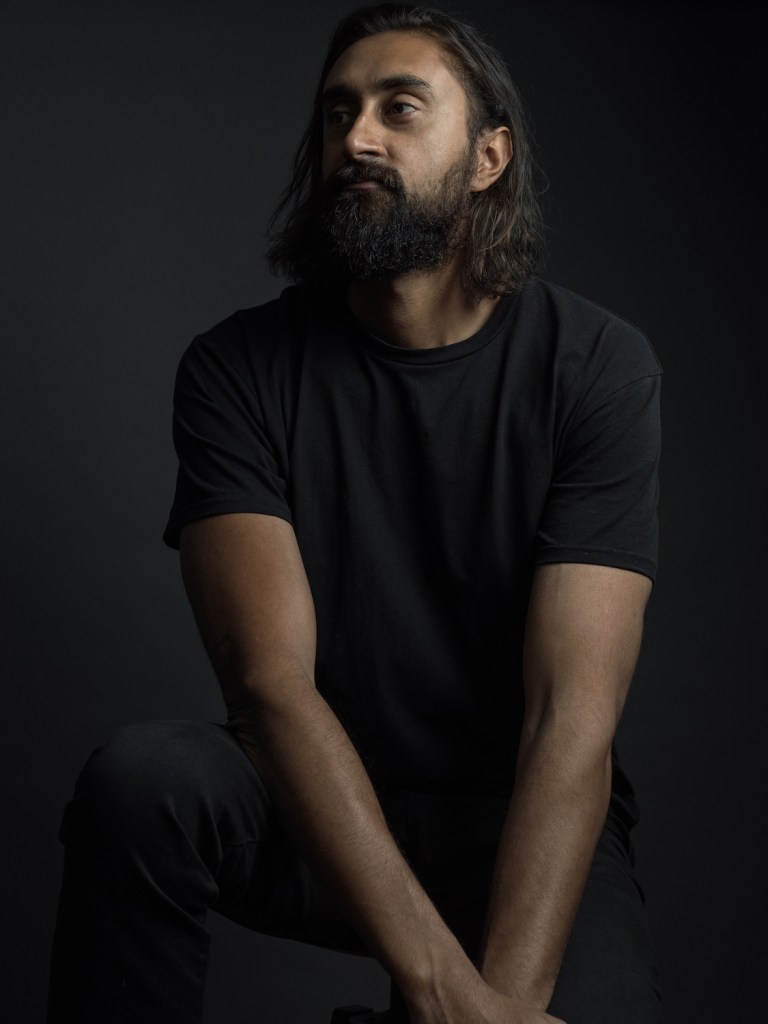
What have you been working on the last 12 months?
Set Up director Mother and Son (ABC/WoodenHorse), season 2 of Heartbreak High (Netflix/Fremantle Media) and currently set up directing an exciting new project that’s yet to be announced.
Why did you initially decide you wanted to be a director?
I’ve always loved different facets of music, art, fashion etc. Directing was an avenue for me to not just celebrate culture but to help craft it.
What’s the advice you wish you’d gotten when you were starting out?
Sleep more!
What’s the biggest issue facing directors who are trying to cut their teeth in the Australian industry?
Perhaps less opportunity. Most shows are geared towards a shorter episode run/one director model these days which means less work going around. When I started out as a runner and AD, shows would run for 13, sometimes 26 eps with many directors.
Your best gig so far and why?
I loved every job I’ve done for different reasons but working as Taika Waititi’s assistant on Thor: Love And Thunder was pretty damn special! Felt like I was in another universe.
Any people who have championed your career you want to give a shout out to?
Taika Waititi and Jeffrey Walker are the two that I’ve absorbed and learned the most from but I’ve also been incredibly lucky to have had a lot of people supporting any success. From all the producers I’ve worked with, to grips and gaffers and all the crew I’ve come through the ranks with. I always feel really supported when I’m on a set and am surrounded by friends and people I’ve admired over the years.
Last film/TV show that inspired you?
Blue Bayou, Les Miserables (2019 Ladj Ly).
Who would you love to work with in the future?
I love the work coming out of See Saw, Made Up Stories and A24. Sam Strauss’s writing is always exciting and I really enjoy watching everything she does.
Anything else you’d like to mention?
I’m grateful for all the support IF Magazine has given me over the years. I’m sure that’s mirrored by many other emerging filmmakers in our industry.
Editors
Michelle McGilvray
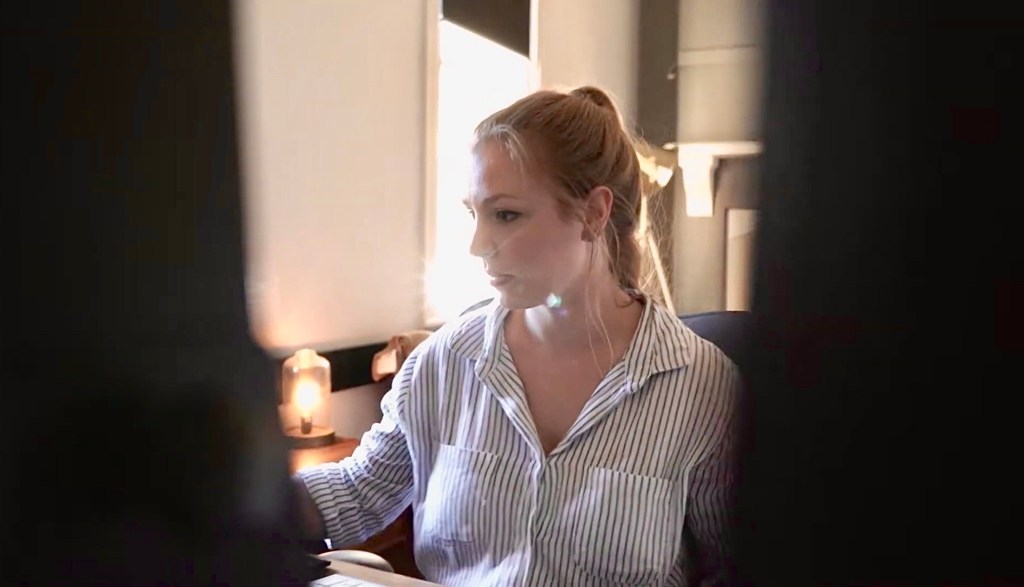
What have you been working on the last 12 months?
Mostly TV series which include First Weapons (Blackfella Films), Gem Hunters (WildBear Entertainment) and Ambulance (Endemol Shine).
Why did you initially decide you wanted to be an editor?
I love the creative freedom of piecing together a story and conveying an emotion with the audience.
What’s the advice you wish you’d gotten when you were starting out?
Honestly, you get a lot of advice as you work your way through, and most of it is great. I’m unsure what advice I wish I’d gotten but I’ll tell you something that helped me get through some harder times in the beginning; “If you’re good at what you do, it’s not a matter of if, but when.”
What’s the biggest issue facing editors who are trying to cut their teeth in the Australian screen industry?
I think overall the screen industry has a toxic productivity mindset and it’s quite challenging to juggle a work life balance, especially when starting out. In the beginning it’s often hard to put boundaries in place in fear of not getting the next job and you end up burning yourself out before you get anywhere.
Your best gig so far and why?
Editing the animated feature film Scarygirl with Cosmic Dino Studios and Like a Photon Creative. Working as an editor on an animated film has a slightly different process to live action, I find I get a lot more creative input and I have an amazing time each time I get the privilege to cut one.
Any people who have championed your career you want to give a shout out to?
Lucy Markovich, Michael Mier, Lav Bodnaruk, Josh Tanner, Jade van der Lei, Ryan Greaves and Ricard Cusso.
Last film/TV show that inspired you?
Triangle of Sadness, just brilliant.
Who would you love to work with in the future?
Josh Tanner on one of his horror feature films.
Producers
Brought to you by Post Lab IO

Bethany Bruce
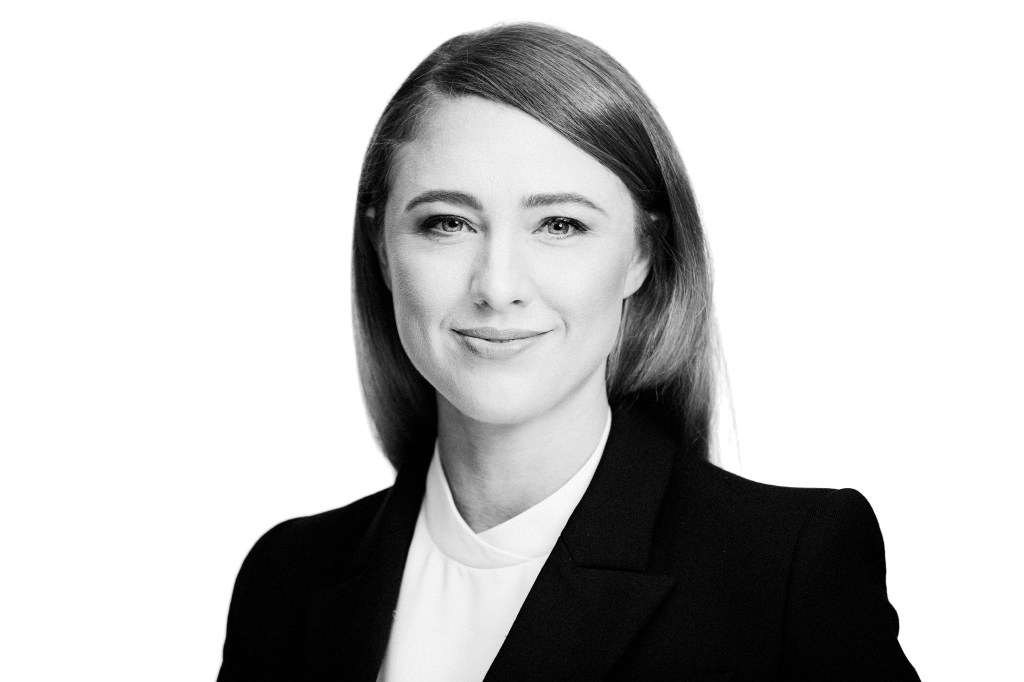
What have you been working on the last 12 months?
A feature documentary directed by Kate Blackmore, Make It Look Real, which follows an intimacy coordinator as she creates sex scenes on a film set, with a documentary crew filming her every move. We’re currently in post-production, and we collaborated with a fantastic cast and crew (stay tuned for announcements!).
Why did you initially decide you wanted to be a producer?
It resonated with me as it’s detail-oriented but big picture, as well as being involved in every aspect of the picture, from finding the story to collaborating with the director, the financing and making it all happen from start to finish.
What’s the advice you wish you’d gotten when you were starting out?
I have had some great mentors in producing, and I’ve learned a lot from each of them. The advice they may not have directly spoken but that their actions taught me is this: ‘Don’t give up.’
What’s the biggest issue facing producers who are trying to cut their teeth in the Australian industry?
Access to marketplace attachments, in particular local distribution and commissioning decision makers. You’re starting out but competing with established players. I would love to see more initiatives between the screen agencies and distributors, where there are matched or joint funding contributions on a project between the screen agencies and co-developed with a distributor or guaranteed distribution. An ABC/Screen Australia initiative, Art Bites, secured me a first broadcast documentary credit, and I’d love to see more of these initiatives like this for those coming up. SBS Digital Originals initiative is another great example.
What is your best gig so far, and why?
Sherpa, a feature documentary I worked on as part of an attachment at Felix Media, taught me a lot, which attracted me to the documentary. Before that, I’d only worked on drama, but watching director Jennifer Peedom and Bridget Ikin’s work opened up the power of storytelling in documentaries. Plus, being involved in the distribution process alongside John Maynard was eye-opening. The film received a BAFTA nomination, making it especially memorable.
Any people who have championed your career you want to give a shout out to?
I learned so much at Felix Media as part of a Screen Australia Enterprise People producer attachment, which I’m grateful for. Bridget Ikin, John Maynard, and Sally Chesher championed me into my first producing credits and broadcast commissions. Jiao Chen, a friend and producer, has been a reliable source of advice and support since we met.
Last film/TV show that inspired you?
Noora Niasari’s Shayda and Selina Miles’s Harley and Katya, Deadloch, Lessons in Chemistry , and the documentary All the Beauty and the Bloodshed about artist Nan Goldin’s personal fight to hold the Sackler family accountable for the US opioid crisis.
Who would you love to work with in the future?
I’d love to work with Margot Robbie on a Kylie Minogue musical biopic!
Writers
Huna Amweero
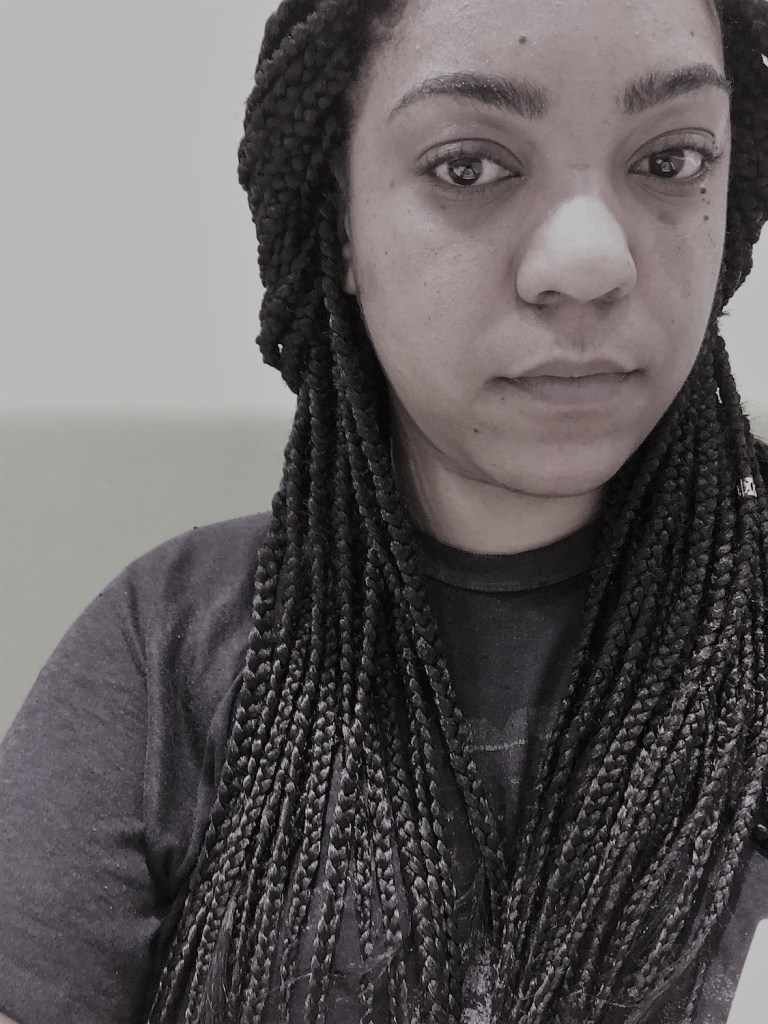
What have you been working on the last 12 months?
Del Kathryn Barton and I are working on our second feature film together; a road trip, grief driven, love-story-moment-in-time. I wrote on season 2 of Surviving Summer (Werner Film Productions/Netflix) and launched Krystal Klairvoyant series on TikTok with Example Content (which was my first producing gig). Currently working on my first one hour drama credit and completing my Screen Australia Enterprise placement at Djali House where I am expanding my producing skills.
Why did you initially decide you wanted to be a writer?
My mum introduced me to community radio when I was around 5 years old. Looking back, as a little Black-Arab kid, it was very empowering, and I found comfort in the voice-unseen aspect. I felt like I was heard and could change the world, while also feeling safe.
It took me a while to find another medium that gave me the same feeling. But once I started screenwriting and realised how challenging it was, I applied to AFTRS. While it was gruelling, by the end of my first year, I wanted to do it all over again. I had once again rediscovered that feeling.
What’s the advice you wish you’d gotten when you were starting out?
I’ve received some pretty good advice (shout-out to Stephen Page and Sam Jennings), so I’m not sure what I’m missing. But I do know which advice I struggle to follow, and that’s “Don’t say yes to everything.” Of course, one should be hungry for opportunities, but learning to let some opportunities go with grace and ease is something I wish I could master. It’s a skill that will serve you well in a career filled with high-highs and low-lows and save you tons in therapy.
What’s the biggest issue facing writers? who are trying to cut their teeth in the Australian screen industry?
The biggest challenge I have faced is balancing the pursuit of income with the development of my own projects and voice. Growing my craft is important to me, so I enjoy being in writers’ rooms and learning from other people. However, as a Black-Arab woman, I also need to invest unpaid time in developing my own voice and creative community. I aspire to bring other marginalised creatives with me as I move forward; however, the projects that pay the bills are predominantly white. Spoiler alert: the money is never enough to compensate for the burden of being ‘the only one in the room’.
Your best gig so far and why?
Hands down, Blaze. For my first feature to be with Causeway Films has absolutely ruined me. I will always treasure the risk they took on pairing me with DKB and letting us run wild in feminist-driven-fast-moving-creativity. My voice was respected, and I was challenged as a writer. I ended the project a better writer. What more could I want!
Any people who have championed your career you want to give a shout out to?
Sam Jennings and Kristina Ceyton – warning me about the challenges of being a screenwriter, then championing me every step of the way when I proceeded anyway. Needeya Islam (my agent) for saying from the get go “your path will be different” and wholeheartedly believing in the vision before anyone. Nancy Denis, my muse, for organising a Black women writers room, that were basically therapy sessions. Joan Sauers and Rachel Davis for really getting me. Stephen and Hunter Page, for bringing me into the fold when I needed it the most. Effie Brown for the future.
Last film/TV show that inspired you?
Rap Shit! The conversation between Shauna and Mia about what kind of rappers they wanna be and why. There was so much love and truth in that scene, I bring it up a lot to reference how Black women can be authentically centred and complex when written properly. And then, the Under the Table conversation on The Bear. Someone back there knows what Black women need from their ride or dies. I don’t know who you are, but I see you and you nailed it.
Who would you love to work with in the future?
Karena Evans, Nosipho Dumisa-Ngoasheng, Sarah Polley, Deborah Mailman, Tony McNamara, Dee Rees, Dominique Fishback, Euros Lyn… and always manifesting that Parkwood call.
As mentioned, we’d love to hear your suggestions for 2024 across the following categories:
Actors
Casting Directors
Cinematographers
Composers
Costume Designers
Directors
Editors
Hair and Makeup
Producers
Production Designers
Sound
VFX and Animation
Writers
Email: risingstars@if.com.au before November 3 COB. In your submission, please tell us why the industry should sit up and pay attention to this person’s body of work.
The full Rising Talent list for 2023 was:
Actors: Julia Savage, Markella Kavenagh, Tuuli Narkle, Shantae Barnes-Cowan, the ensemble cast of Heartbreak High
Cinematographers: Tyson Perkins, Kate Cornish, Maxx Corkindale, Edward Goldner, Sissy Reyes
Composers: Angela Little, Evelyn Ida Morris, Salliana Seven Campbell, Daniel O’Brien, Dmitri Golovko
Costume Designers: Emma Lamp, Olivia Simpson, Victoria Perry, Eryn Burnett-Blue, Genevieve Graham
Directors: Imogen McCluskey, Neil Sharma, Matt Vesely, Stef Smith, Kane Senes and Hannah Barlow
Editors: Lily Davis, Daniel Oates, Michelle McGilvray, Rishi Shukla, Isaac Coen Lindsay
Hair and Makeup: Aoife Murray, Rebecca Burrato, Karen Gower, Rebecca Allen, Samara Gildea
Producers: Bethany Bruce, Liam Heyen, Jessica Magro, Tsu Shan Chambers, Sarah Freeman
Production Designers: Marni Kornhauser, Wei Guo, Aisha Phillips, Jonah Booth-Remmers, Emma Bourke
Sound: Weronika Raźna, Adam Dixon-Galea, Xoe Baird, Marisa Marsionis, Rose Mackenzie-Peterson
VFX and animation: Alana Lennie, Matt Crump, Tessa Bright, Jordan McInnes, John Bastian and Ben Ward
Writers: Huna Amweero, Hannah Carroll Chapman, Gretel Vella, Josh Sambono, Jessica Tuckwell


